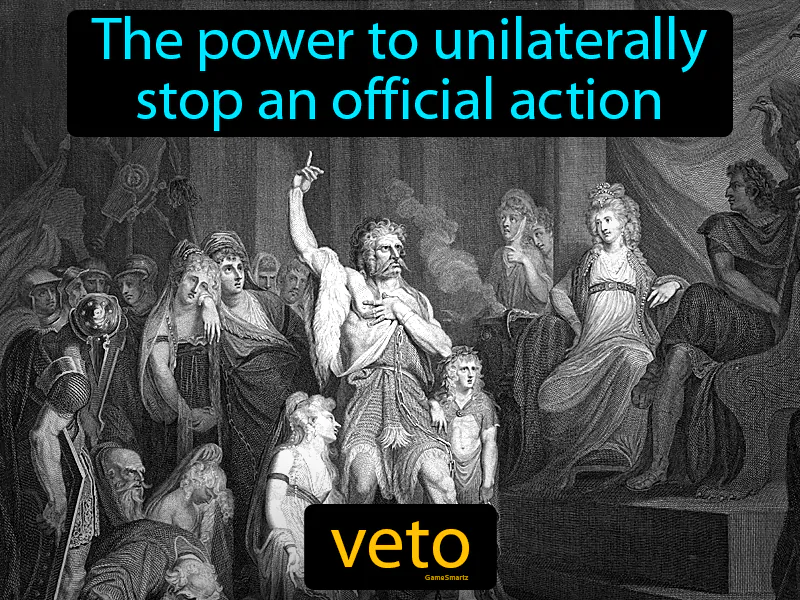Veto
Veto: Easy to understand
In Ancient Rome, the concept of the veto was introduced by the Roman Republic as a way for consuls or tribunes to stop laws or decisions they believed were harmful, ensuring a balance of power. This was important because it prevented any one person or group from having too much control, protecting the interests of the Roman people. The veto was also significant in early Christianity, where church leaders sometimes used it to defend against decisions that could harm the faith or its followers. Today, the veto remains important in modern governments, such as when a president vetoes a bill they disagree with, ensuring that laws are carefully considered before becoming official. On a personal level, a veto-like decision might occur in a school setting when a student council president stops a proposal they think would be unfair to students, showing how the power to say "no" can protect fairness and balance in everyday life.

Practice Version

Veto: Action by which the President prevents an act passed by Congress from becoming law. Veto. A veto is when the President rejects a bill, stopping it from becoming law unless Congress overrides the decision.